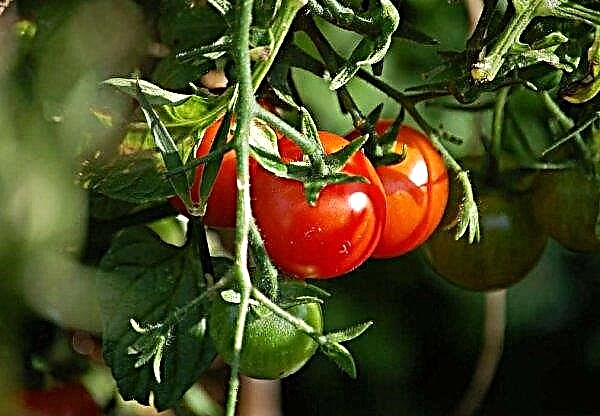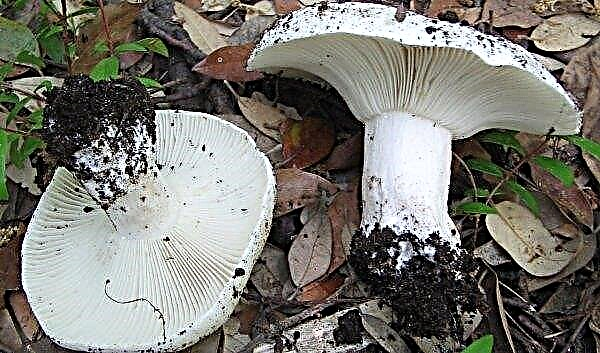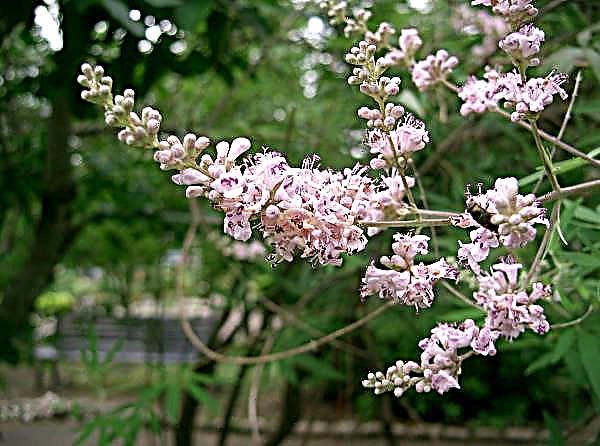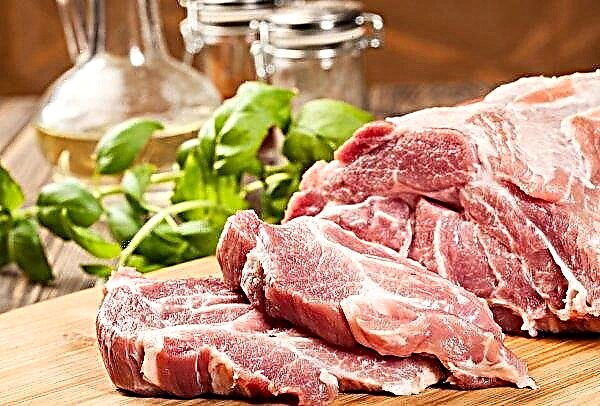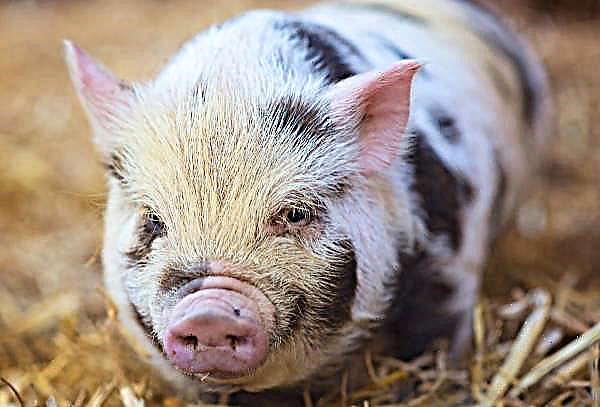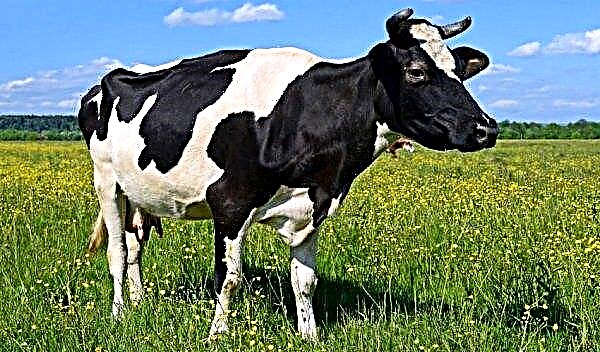Ginger has long been known for its spicy qualities and healing properties. Many try to save, prepare a useful product for future use. In this article - acquaintance with the subtleties of freezing the healing root.
Does frozen ginger lose its properties
Freezing is one of the most popular ways to preserve fruits and vegetables for the winter, and ginger is no exception. How useful the product will be after defrosting, whether it retains its properties in full is an exciting question.
The most unstable of vitamins is considered vitamin Cwhich is abundant in ginger. However, at low temperatures, vitamin C is preserved almost completely, it is only important not to re-freeze. It is better to prepare the product in batches and thus use.
Shock freezing is an ideal way to save the entire volume of minerals and vitamins, but this method is usually available on an industrial scale.

At home, you should adhere to several important rules:
- Pick up a fresh product.
- Wash, clean and let dry.
- If the root is frozen chopped, then first spread a thin layer on a hard surface. After the raw materials “seize”, they are placed in bags or containers.
- The temperature should not exceed –18 ° C, otherwise the liquid contained in the product crystallizes and destroys the cells of beneficial elements.
Important! If your refrigerator has a quick freeze function, use it. After 1 hour, switch to normal mode.
Selection and cleaning
When choosing a product, you should first decide on the exporting country. Raw materials brought from Asian countries are considered softer and more useful, and African goods are distinguished by a bitter taste with an excess of essential oils. Criterias of choice:
- dry and clean peel of an even gray-golden tone;
- characteristic crunch and juice on the break;
- pronounced citrus aroma;
- flexibility and elasticity to the touch;
- the more branches at the root, the greater the benefit;
- lack of fresh eyes.

Peeling ginger resembles peeling young potatoes: the finer the cut of the peel, the more useful parts remain. It is best to scrape off thin skin.
Where to freeze
The root is frozen both in the freezer and on the shelves of the refrigerator. Both methods differ only in shelf life.

In the compartment for vegetables
Shelves for fruits and vegetables in the refrigerator, or "Freshness zone"differ in average temperature + 5 ° С. Here, wrapped in paper or placed in a bag, you can preserve the freshness of ginger. Shelf life in paper is about 7 days, in polyethylene - 21 days. It is absolutely necessary to expel all the air from the plastic bag so that condensation does not accumulate.
Did you know? In Japan, on the Day of Masculinity, all other dishes are customary to serve pickled and fresh ginger. The fact is that since ancient times the plant is considered a powerful aphrodisiac, which especially helps men.
In the freezer
To keep the product fresh longer, you should choose a freezer. Here he is can be stored whole or crushedplaced in a bag with a clasp or just wrapped with cling film. As mentioned above, the main condition for the preservation of useful elements is not to lower the temperature below –18 ° C. The shelf life in this mode will be from 3 to 6 months.

Methods for freezing ginger
Freeze ginger for its medicinal properties should be fresh. However, for seasoning, the root can be stored with additives, cooked or pickled. He will not save useful substances in full, but he will not lose his spice, pungency and special aroma.

With lemon
Many fans of traditional medicine are aware of the healing effect of tandem lemon plus ginger. From this mixture, often with the addition of honey, tea is prepared that has both a prophylactic and therapeutic effect against colds and respiratory diseases. For preparation, both products are ground, the seeds are removed from the lemon and the zest is removed. The gruel is placed in portioned molds and frozen.

Fresh whole ginger
The whole root is stored unpeeled on a shelf in the refrigerator. Thus, it does not lose moisture and, accordingly, minerals and vitamins. Usually it is wrapped in wax paper or parchment, which protects the ginger from extraneous odors.
Did you know? Ginger is mentioned in the Qur'an as a seasoning for wine, which will be served to the righteous in Jannat (Garden of Eden in Islam).
Pickled root

On the shelves of shops, in addition to fresh root, you can buy pickled. An appetizer seasoned with soy sauce, to the taste of many lovers of Asian cuisine. In addition, prefabricated saves time for cooking. If the appetizer is bought with a margin, you can save it by dividing it in portions and placing it in a bag with a zip fastener along with a small amount of marinade.
Ginger ginger
The inconvenience in freezing a whole ginger root is that during cooking all of it may not be needed. Therefore, it is much more convenient to store the product in portions - chopped into pieces or grated.
 For grated mixture, it is convenient to use forms for ice or for sweets.
For grated mixture, it is convenient to use forms for ice or for sweets.
What to do with frozen ginger
Ginger is a very versatile seasoning. Its specific taste and spicy pungency go well with meat, poultry, fish and even seafood. Moreover, it does not matter if the root is fresh or frozen. Spice is used in the preparation of various marinades, sauces and dressings for main dishes and salads.
With crushed spices make sweet and fresh pastries. Saturated and filled with notes of freshness, broths and borscht, creamy vegetable soups are obtained.

Useful and delicious is ginger tea; you can also make a cold drink. Ginger will diversify the taste of any porridge, complement the fruit dessert.
Benefit and harm
The therapeutic effect of the product is due to a large number of vitamins and minerals, tannins and essential substances, and most importantly - Ginger contains almost all the essential amino acids.
- Useful properties of the plant:
- acceleration of metabolism and digestion;
- prevention of vitamin deficiency and anemia;
- prevention of colds (nasopharynx, respiratory system);
- elimination of nausea (for pregnant women with toxicosis);
- anti-inflammatory effect;
- antibacterial effect;
- anthelmintic property;
- healing of the skin;
- support for reproductive and sexual function (in men and women);
- relief of PMS symptoms (premenstrual syndrome) and pain during the cycle;
- elimination of bad cholesterol;
- cleansing and strengthening of blood vessels and capillaries;
- improved brain function;
- cleansing the oral cavity of infections and unpleasant odors.
The saturated composition of the product led to some contraindications: for example, age up to 2 years and gastrointestinal diseases in acute form. A product can cause harm simply when abused.
- Side effects are
- burns to the oral mucosa;
- heartburn;
- diarrhea.
Important! Daily intake of ginger root for an adult — no more than 4 g per day, for pregnant women — 1 g
So, the frozen ginger root retains most of the nutrients, so this storage method is considered the most convenient and acceptable. The therapeutic effect of the plant and the wide range of its use as a seasoning also speak in favor of freezing.

